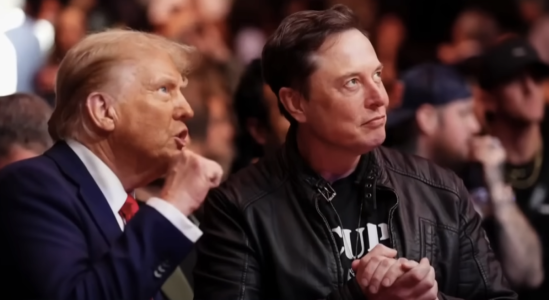Why a government agency just lost access to key financial data—and why it matters to you
By
Veronica E.
- Replies 7
Your personal financial data is one of the most sensitive pieces of information you own, and the thought of unauthorized access to it can be unsettling.
Recently, a legal decision has restricted a government agency’s ability to access Treasury Department payment systems, sparking both concern and debate.
The agency in question, led by tech mogul Elon Musk, had been given access to certain financial databases—access that many believed raised serious privacy and security concerns.
While some argue this decision helps protect personal data, others see it as a bureaucratic roadblock.
So, what exactly happened, and what does it mean for you? Let’s take a closer look.

The Department of Government Efficiency (DOGE), an agency led by Elon Musk, has been at the center of controversy for its role in accessing Treasury payment systems.
A lawsuit filed by a coalition of union members and retirees argued that DOGE’s access to the Bureau of the Fiscal Service—where sensitive financial data is stored—was unnecessary and potentially unlawful.
In response, the Trump administration filed a motion late Wednesday agreeing to restrict DOGE’s access.
The order, approved the following morning by U.S. District Judge Colleen Kollar-Kotelly, ensures that DOGE staff will no longer have access to payment records or financial systems, except for two special government employees who were granted limited permissions.
At the heart of this legal battle is a major concern: the security of personal financial information. The lawsuit argues that allowing unnecessary access to these systems increases the risk of data being misused or compromised.
Given that these databases contain Social Security details, bank account information, and other financial records, any potential mishandling could have serious consequences—especially for retirees and seniors who rely on government benefits.

The White House has defended DOGE’s involvement, stating that Musk and his team acted within legal boundaries and had the appropriate security clearances.
However, some critics question whether these assurances are enough to prevent potential risks to financial privacy.
Elon Musk’s influence within the administration has been a topic of discussion, particularly because he holds a special government employee status. This designation gives him a unique level of access without making him a full-time federal employee.
While his supporters argue that his expertise helps streamline government operations, others worry about the potential for overreach, particularly when it involves sensitive financial data.
One of the key groups raising concerns is the Service Employees International Union (SEIU), which is among the plaintiffs in the lawsuit.
While they welcome the judge’s decision to limit DOGE’s access, they believe more needs to be done to ensure that private financial information remains protected.
For now, DOGE’s access to Treasury payment systems is restricted, but this is only a temporary measure. A hearing scheduled for February 24 will determine whether these restrictions will become permanent.
The outcome of this case could set a precedent for how financial data is handled within government agencies moving forward.
In the meantime, it’s always a good idea to take steps to protect your financial information:
The decision to limit DOGE’s access marks an important step in addressing concerns over data security and privacy.
As the case moves forward, the outcome will have lasting implications for how personal financial information is handled within government systems. Staying informed and proactive remains essential in navigating these developments.

How do you feel about this decision? Do you think restricting access was necessary, or do you believe it could slow down government efficiency? Share your thoughts in the comments below—we’d love to hear from you!
Also read: Lawsuit challenges US Treasury over DOGE access—is your personal data at risk?
Recently, a legal decision has restricted a government agency’s ability to access Treasury Department payment systems, sparking both concern and debate.
The agency in question, led by tech mogul Elon Musk, had been given access to certain financial databases—access that many believed raised serious privacy and security concerns.
While some argue this decision helps protect personal data, others see it as a bureaucratic roadblock.
So, what exactly happened, and what does it mean for you? Let’s take a closer look.

Elon Musk and President Trump at the center of a growing debate over government access and data privacy. Image Source: YouTube / MSNBC.
The backstory: Why was access restricted?
The Department of Government Efficiency (DOGE), an agency led by Elon Musk, has been at the center of controversy for its role in accessing Treasury payment systems.
A lawsuit filed by a coalition of union members and retirees argued that DOGE’s access to the Bureau of the Fiscal Service—where sensitive financial data is stored—was unnecessary and potentially unlawful.
In response, the Trump administration filed a motion late Wednesday agreeing to restrict DOGE’s access.
The order, approved the following morning by U.S. District Judge Colleen Kollar-Kotelly, ensures that DOGE staff will no longer have access to payment records or financial systems, except for two special government employees who were granted limited permissions.
Why this matters for your personal data
At the heart of this legal battle is a major concern: the security of personal financial information. The lawsuit argues that allowing unnecessary access to these systems increases the risk of data being misused or compromised.
Given that these databases contain Social Security details, bank account information, and other financial records, any potential mishandling could have serious consequences—especially for retirees and seniors who rely on government benefits.

Discussions continue over data security and government access, highlighting the need for strong protections. Image Source: Pexels / Pixabay.
The White House has defended DOGE’s involvement, stating that Musk and his team acted within legal boundaries and had the appropriate security clearances.
However, some critics question whether these assurances are enough to prevent potential risks to financial privacy.
Elon Musk’s role and the broader debate
Elon Musk’s influence within the administration has been a topic of discussion, particularly because he holds a special government employee status. This designation gives him a unique level of access without making him a full-time federal employee.
While his supporters argue that his expertise helps streamline government operations, others worry about the potential for overreach, particularly when it involves sensitive financial data.
One of the key groups raising concerns is the Service Employees International Union (SEIU), which is among the plaintiffs in the lawsuit.
While they welcome the judge’s decision to limit DOGE’s access, they believe more needs to be done to ensure that private financial information remains protected.
What happens next?
For now, DOGE’s access to Treasury payment systems is restricted, but this is only a temporary measure. A hearing scheduled for February 24 will determine whether these restrictions will become permanent.
The outcome of this case could set a precedent for how financial data is handled within government agencies moving forward.
In the meantime, it’s always a good idea to take steps to protect your financial information:
- Regularly monitor your bank accounts for unusual activity.
- Use strong, unique passwords for online accounts.
- Stay informed about government policies that could impact your financial security.
The decision to limit DOGE’s access marks an important step in addressing concerns over data security and privacy.
As the case moves forward, the outcome will have lasting implications for how personal financial information is handled within government systems. Staying informed and proactive remains essential in navigating these developments.
Key Takeaways
- The Trump administration has agreed to restrict the Department of Government Efficiency's (DOGE) access to Treasury Department payment systems,
following a lawsuit alleging privacy violations. - A temporary agreement prevents DOGE staff from accessing payment records until a ruling on a preliminary injunction, with a hearing set for February 24.
- Plaintiffs are concerned about the potential misuse of personal information by unauthorized third parties, including DOGE members and Elon Musk.
- The Service Employees International Union and other critics have expressed concerns about the increasing influence and power of Elon Musk, an unelected official, within the
federal government.
How do you feel about this decision? Do you think restricting access was necessary, or do you believe it could slow down government efficiency? Share your thoughts in the comments below—we’d love to hear from you!
Also read: Lawsuit challenges US Treasury over DOGE access—is your personal data at risk?





